-WFWW-
ဘာရိမ္းႏုိင္ငံရဲ႕ ၿမိဳ႕ေတာ္ မာနားမားရဲ႕ ပုလဲရင္ျပင္မွာ အာဏာရွင္ အဆုံးသတ္ေရး လူထုဆႏၵၿပပြဲကုိ အဂၤါေန႔ကတည္းက သပိတ္စခန္းခ် ဆႏၵျပေနၾကတယ္။ ယင္း ဆႏၵၿပသူမ်ား ကို ဒီေန႔မနက္ ေစာေစာမွာ အဓိက႐ုဏ္းထိန္း ရဲတပ္ဖြဲ႕က ၀င္ေရာက္ ၿဖိဳခြင္းၿပီးေနာက္ ဘာရိမ္းစစ္တပ္က ၿမိဳ႕ေတာ္ရဲ႕ ေနရာတခ်ဳိ႕ကုိ ျပန္လည္ ထိန္းခ်ဳပ္ႏုိင္ခဲ့ၿပီလို႔ ေျပာလုိက္ပါတယ္။ ဒါေပမဲ့လည္း အာဏာရွင္ ဆန္႔က်င္ေရးလူထု လႈပ္ရွားမႈမ်ား ကုိ ဆက္လက္ ဆင္ႏြဲသြားမယ္လုိ႔ ဆႏၵၿပသူမ်ားက ေၿပာဆုိခဲ့ၾကတယ္။ ဘာရိန္း အာဏာရွင္ အဆုံးသတ္ေရး လူထုဆႏၵၿပပြဲမွာ အမ်ိဳးသမီးေထာင္နဲ႔ခ်ီ ေရ႔ွတန္းကေန ပါ၀င္ခဲ့ေၾကာင္းသိရွိရပါသည္။
လစ္ဗ်ားႏုိင္ငံမွာေတာ့ ႏိုင္ငံ ကို ၄၂ ႏွစ္ၾကာ အုပ္ခ်ဳပ္ ထားသည့္ အာဏာရွင္ လစ္ဗ်ား ေခါင္းေဆာင္ အသက္ ၆၈ ႏွစ္ အရြယ္ ရွိ ကဒါဖီ ႏႈတ္ ထြက္ရန္ ေတာင္း ဆိုထားသည့္ လူထုဆႏၵၿပပြဲမ်ား၊ ၿမိဳ႔ေတာ္ ေတာ္ေတာ္ မ်ားမ်ား ကုိ ကူးစက္သြားေနပါၿပီ။ ၿမိဳ ့ေတာ္ ရွိ ရဲ စခန္းတခု ကို မီးတင္ရိႈ ့လိုက္ၾကၿပီး၊ၿမိဳ ့ေတာ္ ထရီ ပို လီ တြင္ လည္း ဆႏၵျပမႈမ်ား အားေကာင္းလ်က္ရွိေနပါသည္။ ဆႏၵၿပ သူမ်ားက ေသာၾကာေန ့ကို အေထြေထြ သပိတ္ စတင္မည့္ ေန႔အျဖစ္ သတ္မွတ္လုိက္ၿပီး၊ တႏုိင္ငံလုံး အာဏာရွင္ အဆုံးသတ္ေရးကုိ တုိက္ပြဲ၀င္ၾကဖုိ႔ ေဆာ္ၾသေနၾကပါသည္။
Unrest in the Middle East and North Africa -- country by country
Thursday developments:
BAHRAIN
Three people died and scores more were injured early Thursday when security forces stormed an encampment of protesters. The charge occurred early Thursday in the Pearl Roundabout, a landmark city circle located in the center of Manama, and the clampdown swiftly drew local and international condemnation. Witnesses described a blunt show of force, with police firing pellets, rubber bullets and tear gas to force protesters out of the square and indiscriminately attacking demonstrators, who modeled themselves after the demonstrators on Tahrir Square in Cairo, Egypt. Dr. Faisal Ben Yacoub Al Hamar, the health minister, said on state television Thursday that three people died and at least 225 were injured amid
the crackdown. About 195 of the injured were treated and released while 30 to 40 remained hospitalized. Two other people died during disturbances earlier in the week.
EGYPT
Egypt's newly appointed minister of antiquities announced Thursday that tourist sites will reopen on Sunday. "All of the Pharaonic, Coptic, Islamic and modern sites" will reopen, said a statement from the Minister of Antiquities Affairs, Zahi Hawass. The decision was made after Hawass met with members of the ministry and the Antiquities and Tourism Police to discuss security measures. "Dr. Hawass stated he hopes tourists from around the world will soon return to Egypt," the statement said. Former President Hosni Mubarak stepped down Friday following 18 days of upheaval in Egypt.
IRAQ
Nine people were killed and 47 were injured Thursday when hundreds of protesters clashed with security forces in Sulaimaniya, a city in the Kurdish region of northern Iraq, according to Dr. Raykot Hamed Salih, a health official there. Dozens of protesters attacked the Kurdistan Democratic Party headquarters in the city and destroyed furniture and computers inside the building, police officials in Sulaimaniya told CNN. Witnesses told CNN that a number of Kurdish security forces, known as peshmerga, opened fire to disperse the protesters. The demonstrators were angry about corruption, the quality of basic services and unemployment, Salih said.
LIBYA
Messages and videos posted on social media sites Thursday signaled that anti-government protests in Libya were gathering steam in several cities, with some turning violent on a "Day of Rage." There were reports of 16 deaths, but they could not be independently confirmed. A text message sent out on mobile phones challenged younger Libyans to take to the streets, activists and bloggers said. "From Libya's youth to anyone who dares to cross any of the four red lines come and face us in any street on the ground of our beloved country," the Short Message System dispatch said, referring to a speech by Saif el-Islam Gadhafi, Moammar Gadhafi's son, in which he described the lines as Islamic law, the Quran, Libyan security and his father. CNN does not have journalists in Libya and was unable to confirm the extent of the demonstrations unfolding there. Protests in the isolated North African nation broke out this week.
YEMEN
At least 20 people were injured in clashes between stone-throwing pro- and anti-government demonstrators Thursday in Yemen's capital, Sanaa, an opposition lawmaker told CNN. Ahmed Hashid, the lawmaker, said police at the scene did not try to intervene. The clashes came after anti-government protesters tried to find a place to hold their demonstration, the government opponents told CNN. They had planned to gather at Sanaa University but found government supporters there, who forced them to leave, they said. The clash took place in western Sanaa, with about 600 government opponents there at the peak, they claimed. It was the seventh straight day of protests in Yemen.
Previous developments:
ALGERIA
Authorities in Algeria said Monday that they would lift a 20-year state of emergency in the "coming days," but it had not been canceled as of Tuesday. They acted after anti-government protesters chanting "Change the power!" clashed with security forces in the capital over the weekend, witnesses said. The state of emergency was imposed in 1992 to quell a civil war that led to the deaths of what U.S. officials estimate to be more than 150,000 people. About 100 protesters were arrested during the protests in Algiers on Saturday, according to the opposition Algerian League for Human Rights.
IRAN
Thousands of people, many of them Iranian government supporters, turned up in Tehran on Wednesday for the funeral of a man killed in anti-government protests. The gathering near Tehran University comes amid tension in the nation following a crackdown on anti-government protests. Government officials said 26-year-old Sana Jaleh was shot to death Monday by members of an outlawed group called the People's Mujahedeen Organization of Iran. The group, which is also known as the Mojahedin-e Khalq Organization, has opposed the Iranian government for decades. Iranian lawmakers on Tuesday called for the execution of key opposition leaders. On Monday, tens of thousands of pro- and anti-government protesters marched in downtown Tehran.
JORDAN
King Abdullah II swore in a new government last week following anti-government protests in his country. The new government has a mandate for political reform and is headed by a former general, with several opposition and media figures among its ranks. The appointment of Marouf al-Bakhit as the new prime minister was seen as an attempt to shore up support among Jordan's Bedouin tribes -- the bedrock of the monarchy. Jordan's economy has been hard-hit by the global economic downturn and rising commodity prices, and youth unemployment is high, as it is in Egypt. Officials close to the palace have told CNN that Abdullah is trying to turn a regional upheaval into an opportunity for reform.
PALESTINIAN TERRITORIES
Prime Minister Salam Fayyad's Cabinet submitted its resignations to Palestinian Authority President Mahmoud Abbas on Monday, days after the announcement the legislative and parliamentary elections will be held before September. The Palestinian Territories have not seen the kind of demonstrations as in many Arab countries, but the government has been under criticism since Al-Jazeera published secret papers claiming to reveal some of the wide-ranging concessions Palestinian officials were prepared to make in negotiations with Israel. Negotiations have collapsed. Abbas' Palestinian Authority holds sway only over the West Bank. The militant Islamist movement Hamas controls Gaza.
SUDAN
Demonstrators have clashed with authorities on several recent occasions in Sudan. Human Rights Watch has said that "authorities used excessive force during largely peaceful protests on January 30 and 31 in Khartoum and other northern cities to call for an end to the National Congress Party rule and government-imposed price increases." Witnesses said that security forces used pipes, sticks and tear gas to disperse protesters and that several people were arrested, including 20 who remain missing. The Sudanese Embassy said that people in Sudan have the right to "demonstrate as they wish" but that "some opportunists capitalize" on incidents "to inspire chaos or smear Sudan's image."
SYRIA
As protests heated up around the region, the Syrian government pulled back from a plan to withdraw some subsidies that keep the cost of living down in the country. President Bashar al-Assad also gave a rare interview to Western media, telling The Wall Street Journal for a January 31 article that he planned reforms that would allow for local elections and included a new media law and more power for private organizations. A planned "Day of Rage" that was being organized on Facebook for February 5 failed to materialize, The New York Times reported.
TUNISIA
A government-imposed curfew in Tunisia has been lifted, but a state of emergency remains in effect, the Interior Ministry said Tuesday, as reported by the state-run Tunis Afrique Presse. The curfew was from midnight until 4 a.m., and the state of emergency was put into place on January 14. After weeks of demonstrations that started in December, longtime President Zine El Abidine Ben Ali fled the country.





















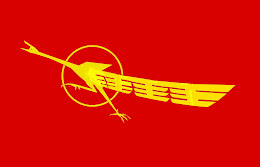





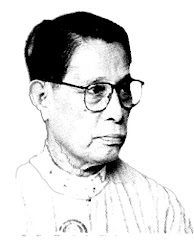


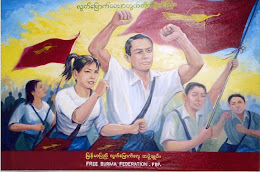





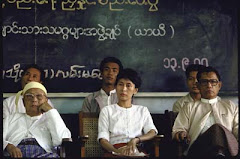

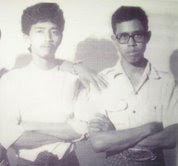

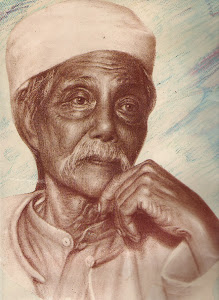
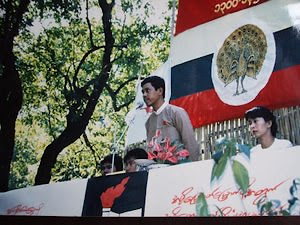
No comments :
Post a Comment